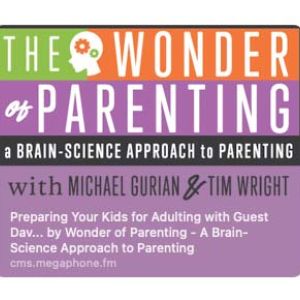The Role of Pediatric Neurological Assessment in Primary Care Practice
As medical practitioners, physicians are typically the first clinical professionals to evaluate a child. In addition, physicians are one of the few clinicians who maintain an ongoing, consistent relationship with children and their parents. In contrast, pediatric neuropsychologists typically serve as consultants who work with children for a brief, circumscribed period of time. The purpose of the present article is to provide an overview of pediatric neuropsychological assessment and outline the ways in which pediatric neuropsychology contributes to the practice of primary care physicians and the care of children.
Pediatric neuropsychological assessment involves the examination of children's neurocognitive and neurobehavioral functioning.1-3
Specifically, it involves the integration of information across a number of domains within the context of development and brain/behavior relationships (the interaction between cognitive functioning, medical issues, and psychiatric factors). Pediatric neuropsychological assessment includes the evaluation of children's intellectual ability, memory, attention, executive/organizational skills, perceptual-spatial skills, graphomotor-coordination skills, and socio-emotional functioning. Psychoeducational testing is often included for the assessment of learning and academic achievement. Developmental testing includes the assessment of children under the age of 5 and involves the evaluation of skill acquisition across a number of domains (e.g., gross- and fine-motor skills, communication, self-help skills, and sociability).
Pediatric neuropsychological evaluations are more comprehensive than evaluations conducted within the school setting. The primary purpose of a school-based evaluation is the assessment of a child's functioning within the school environment, the identification of barriers to a child's successful academic performance, and determination of eligibility for special education services or accommodations (Individuals with Disabilities Education Act, IDEA). Thus, the assessment and the implications of the evaluation are generally limited to the child's education and functioning within the school environment. At the culmination of a school-based evaluation, a child may be deemed eligible to receive special services within an eligibility category (e.g., autism, mental impairment, or specific learning disability). These categories serve as educational classifications for purposes of special education. The classification is not a diagnosis and the implications of the evaluation do not extend beyond the school setting. An educational classification and a psychiatric diagnosis may overlap; however, the two involve separate systems of categorization with distinct criteria. In contrast to the school-based evaluation, the purpose of a neuropsychological evaluation is the assessment of a child's overall functioning across a number of skill domains. The scope of the evaluation is not restricted to the school environment; rather, information regarding the child's functioning within a number of contexts is evaluated to inform an overall impression of the child. As a result, implications of the evaluation are far-reaching.
Pediatric neuropsychologists typically serve children with medical conditions, developmental disabilities, psychiatric problems, academic difficulties, and social problems. Specific concerns, for example, might include cognitive weaknesses secondary to medical problems, a decline in school performance, depression, attention problems, behavior problems, developmental delay, and autism. As first-line clinicians, primary care physicians are in a position to conduct basic screenings for children who may be evidencing difficulties. For example, there are a number of potential indicators for autism in young children. These include: not pointing with one's index finger to indicate interest in something, not bringing objects over to show parents, lack of pretend play, lack of response when child's name is called, and failure to look when parents point to something. If some of these behaviors are reported by parents and/or observed by physicians, the child should be referred for evaluation. When young children exhibit delays that are not restricted to one domain of functioning, they should be referred for evaluation. For example, if a child has been identified with a speech delay and also demonstrates delays in self-care and motor skills, the child may be delayed globally and would therefore benefit from additional intervention beyond that of speech/language therapy. As well, an evaluation can help to determine the source of a child's difficulties. For example, a speech delay may be the result of an overall cognitive delay, deficits in language comprehension or expression, or autism. A number of neurological and medical conditions (e.g., hydrocephalus, meningitis, epilepsy, diabetes, metabolic disorders) are associated with subtle, and not-so-subtle, neurocognitive outcomes that tend to go undetected. These include weaknesses in language, concentration, memory, and organization. Neuropsychological evaluations can provide information regarding changes in the child's functioning as a result of disease progression. It may also serve to provide a baseline against which to evaluate the outcome of a medical treatment. Although primary care physicians make diagnoses of Attention-Deficit/Hyperactivity Disorder (ADHD) based upon their evaluation of a child, children who present with symptoms of inattention and restlessness should be referred for a neuropsychological evaluation under the following circumstances: 1) the problems are generally circumscribed to the school setting/learning environment, 2) there are concerns that the child may have a learning disability, and/or 3) there are potential socio-emotional problems (e.g., anxiety, depression). These children should receive a comprehensive evaluation given that problems of attention/restlessness may be secondary to mood problems or learning difficulties, in contrast to primary problems of attention and behavior.
There are a number of components to a pediatric neuropsychological evaluation. Given the broad scope of the evaluation, information from parents, teachers, and other caregivers is obtained through rating scales and phone consultation. Within a parent interview, information is gathered with respect to children's developmental, medical, family, school, psychiatric, and social history. As well, children's medical, psychiatric, and school records are reviewed. Children may also be observed within their school classroom setting. Children typically meet individually with an examiner for several hours to complete a number of measures ranging from paper-and-pencil tests, computer tasks, and puzzle- and game-like activities. Younger children are typically accompanied by a caregiver when meeting with the examiner and testing usually involves hands-on, play-based activities. Once all information has been obtained and testing completed, the pattern of findings is integrated into an overall formulation of a child's strengths and weaknesses. This formulation is communicated to parents and children (depending upon age) within a meeting. Parents and children are also provided with recommendations to increase the likelihood of children's success within school and their day-to-day living. Recommendations may include referrals for other evaluations (e.g., occupational therapy), suggestions for school-based accommodations and related services, referrals for psychiatric evaluation, referrals for counseling (individual, parent, family, social skills training), and resources regarding academic remediation/tutoring. Finally, the evaluation results are presented within a comprehensive report.
Given that the pediatric neuropsychologist typically acts as a consultant, oftentimes, there is little contact between the neuropsychologist and family once the evaluation has been completed. This is unfortunate, given the overwhelming amount of information parents typically receive within the final meeting with the neuropsychologist and the evaluation report. Therefore, it is imperative that the primary care physician review the conclusions of the evaluation with the parents to ensure comprehension and address questions regarding the implications of the child's functioning. Given the ongoing relationship between primary care physicians and their patients, physicians are in a unique position to both encourage and monitor parents' follow-through with the referrals and suggestions made on the basis of the evaluation. They can also provide the often necessary reminder for parents to seek a re-evaluation in the coming years when it has been indicated. In this manner, physicians and pediatric neuropsychologists can create a dynamic working relationship in which children and families receive quality care.
In sum, pediatric neuropsychological assessment provides a unique profile of a child's strengths and weaknesses not otherwise obtained through other types of evaluation. That is, it entails the comprehensive evaluation of children's neurobehavioral functioning across a variety of domains within the context of development. Evaluations result in considerable implications for children's functioning, across a variety of contexts (e.g., developmental, medical, psychiatric, family, and academic). As such, pediatric neuropsychologists make significant contributions to a physician's practice as well as the clinical management of children and their families.
REFERENCES
- Baron IS. Clinical implications and practical applications of child neuropsychological evaluations. In: Yeates KO, Ris MD, Taylor HG, eds. Pediatric Neuropsychology: Research, Theory, and Practice. New York, NY: Guildford Press, 2000:439-56.
- Baron IS. Neuropsychological Evaluation of the Child. Oxford: University Press, 2004.
- Bernstein JH. Developmental neuropsychological assessment. In: Yeates KO, Ris MD, Taylor HG, eds. Pediatric Neuropsychology: Research, Theory, and Practice. New York, NY: Guildford Press, 2000:405-38.
If you have any questions about Pediatric Neurological Assessments, contact Weston Psych Care today.




